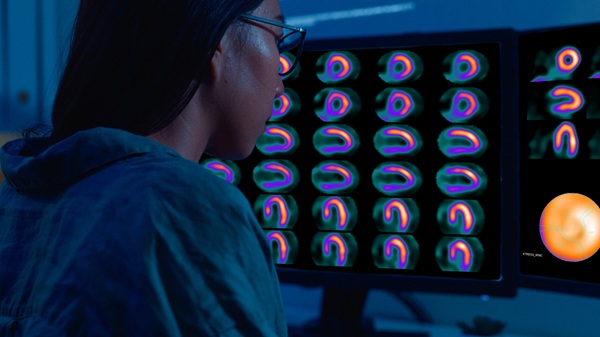A Hopeful Sign

DETROIT - A Henry Ford Health System patient who developed a rare form of encephalitis after testing positive for the coronavirus has been discharged from the hospital.
The 58-year-old female patient was discharged Thursday to a rehabilitation facility.
Elissa Fory, M.D., a Henry Ford neurologist who was part of the team of medical specialists involved in the patient's care, says the patient's improvement was a hopeful sign.
"I'm very cautiously optimistic that she will continue to recover," Dr. Fory says.
The case report linking acute necrotizing encephalitis, or ANE, with the coronavirus was published March 31 in the journal Radiology. It is believed to be the first published case highlighting the association.
ANE is a central nervous infection that mostly afflicts younger children. It's a rare condition, particularly in the adult population, and is associated with poor clinical outcomes. It develops in response to other infections like influenza, chickenpox and enterovirus.
On March 19, the patient was admitted to the hospital after showing signs of confusion, lethargy and disorientation. For several days leading up to that, she experienced fever, cough and muscle aches - symptoms consistent with COVID-19.
A flu test performed at the hospital turned up negative. But a rapid COVID-19 test, developed in-house by Henry Ford's clinical microbiology lab, confirmed positive coronavirus.
When the patient remained lethargic, doctors ordered a repeat CT and MRI scans. The MRI scan identified abnormal lesions in both thalami and temporal lobes, parts of the brain that control consciousness, sensation and memory function. These scans confirmed doctors' early suspicions.
"Our team had suspected encephalitis at the outset, but then back-to-back CT and MRI scans made the diagnosis," Dr. Fory says.
Henry Ford doctors say the case highlights that patients with COVID-19 and an altered level of consciousness should be monitored for focal neurologic signs, suggestive of more severe neurologic complications such as encephalitis or stroke. "We need to be thinking of how we're going to incorporate patients with severe neurological disease into our treatment paradigm," Dr. Fory says.
###
MEDIA CONTACT: David Olejarz / David.Olejarz@hfhs.org / 313.874.4094
.svg?iar=0&hash=F6049510E33E4E6D8196C26CCC0A64A4)

/hfh-logo-main--white.svg?iar=0&hash=ED491CBFADFB7670FAE94559C98D7798)








